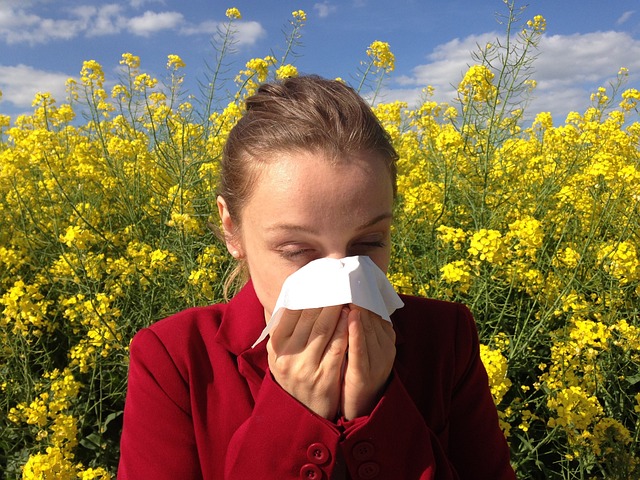
Allergy season can be a challenging time of year for many people. With the onset of spring and summer, pollen counts rise, and for those who suffer from seasonal allergies, this can mean weeks or even months of discomfort. Sneezing, itchy eyes, runny noses, and congestion can make life miserable. However, with a few strategic steps, you can manage your symptoms and enjoy the season. Here are five tips to help you survive allergy season.
1. Monitor Pollen Counts
One of the most effective ways to manage your allergies is to stay informed about pollen counts in your area. Pollen counts measure how much pollen is in the air and are usually higher in the morning and on windy days. Various websites and apps provide daily pollen forecasts, allowing you to plan your activities accordingly.
If pollen counts are high, consider staying indoors as much as possible, especially during peak hours. Close your windows to keep pollen from entering your home. If you need to be outside, wearing sunglasses and a wide-brimmed hat can help protect your eyes and face from pollen. Additionally, using air conditioning instead of opening windows can help filter out pollen from your living space.
2. Create a Clean Indoor Environment
Your home should be a sanctuary from allergens, so it’s important to keep it as clean and allergen-free as possible. Start by vacuuming regularly with a vacuum that has a HEPA filter. These filters are designed to trap small particles like pollen, pet dander, and dust mites. Don’t forget to clean and replace the filter in your air conditioning system regularly.
Washing your bedding and curtains frequently can also reduce allergens. Use hot water to kill dust mites and remove pollen. Consider investing in hypoallergenic covers for your mattresses and pillows to create an additional barrier against allergens. Keeping humidity levels low in your home can also help, as dust mites and mold thrive in humid environments.
3. Practice Good Personal Hygiene
Pollen can easily attach to your skin, hair, and clothing, so practicing good personal hygiene is crucial during allergy season. After spending time outdoors, take a shower and change your clothes to remove any pollen that may have accumulated. This can significantly reduce the amount of pollen you bring into your home.
Additionally, washing your face and hands frequently can help minimize exposure to allergens. For those who wear contact lenses, switching to glasses during peak allergy season can help reduce irritation. If you do wear contacts, make sure to clean them thoroughly and consider using rewetting drops to soothe your eyes.
4. Use Over-the-Counter Medications Wisely
There are many over-the-counter medications available to help manage allergy symptoms. Antihistamines, decongestants, and nasal sprays can provide relief, but it’s important to use them correctly and choose the right ones for your symptoms. Antihistamines can help reduce sneezing, itching, and runny nose, while decongestants can relieve nasal congestion.
Nasal corticosteroid sprays are highly effective for reducing inflammation and treating nasal symptoms. However, they should be used regularly for the best results, as they take a few days to start working. Be mindful of the potential side effects of these medications, such as drowsiness or increased blood pressure, and consult with your healthcare provider if you have any concerns or pre-existing conditions.
5. Consider Natural Remedies
For those who prefer natural remedies, there are several options that can help alleviate allergy symptoms. One popular method is using a saline nasal rinse, such as a neti pot, to flush out allergens and mucus from your nasal passages. This can provide immediate relief and help prevent congestion.
Local honey is another natural remedy that some people find helpful. The idea is that consuming small amounts of local honey can help your body build a tolerance to local pollen. While scientific evidence on this is limited, many people swear by it. Herbal supplements like butterbur and quercetin have also shown promise in reducing allergy symptoms. However, it’s important to consult with a healthcare professional before starting any new supplement to ensure it’s safe for you.
In conclusion, surviving allergy season requires a combination of staying informed, maintaining a clean environment, practicing good hygiene, using medications wisely, and considering natural remedies. By taking these proactive steps, you can minimize your symptoms and enjoy the beauty of the season without the discomfort of allergies. Remember, it’s always best to consult with a healthcare provider to develop a personalized plan that works best for you.
